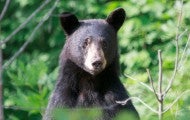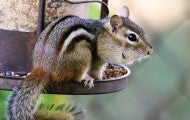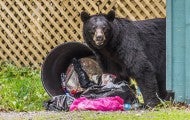As black bear numbers increase in some North American communities and more people move into bear habitat, encounters between bears and people have risen. Whether you live in bear country or are just visiting, you can take simple steps to avoid conflicts. Learn More About Bears (Please note that this...
By some human standards, my pond is a hot mess. Underneath and around the water lilies are fallen leaves, branches and other debris of decomposing plants. Along the edges, sea oats, sedges and swamp sunflowers hug the rocks. But if humans are picky in their desire for orderliness, frogs are just as...
It started in 2002: The bears around Durango, Colorado, came down from the hills to feast on the city’s garbage. Normally, natural food—nuts and berries and acorns—keeps them in the woods, but a series of droughts and late freezes in 2002, 2007, 2012 and 2017 left them hungry. Despite their fear of...





